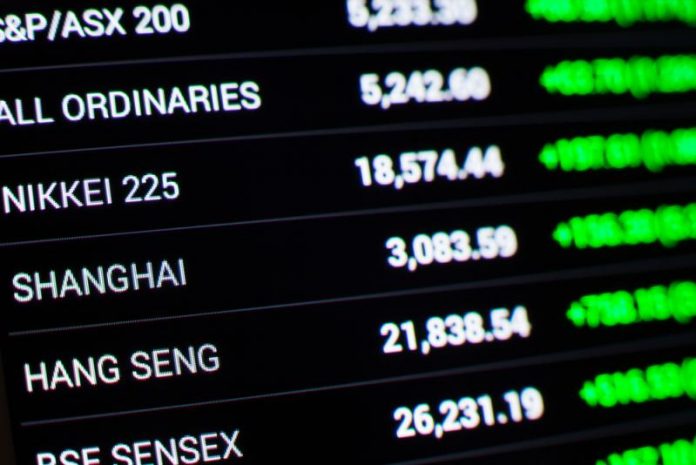TOKYO: Share prices edged higher Friday morning in Asia, tracking modest gains on Wall Street. Tokyo’s Nikkei 225 index added 0.1 percent to 22,892.38 following Cabinet approval of a budget plan that includes record defense outlays and an extra 2.9 trillion yen ($25.6 billion) in stimulus spending.
KEEPING SCORE: Hong Kong’s Hang Seng index added 0.3 percent to 29,444.78 and the Kospi in South Korea climbed 0.4 percent to 2,439.25. The Shanghai Composite index was up 0.1 percent at 3,303.81 and the S&P ASX 200 in Australia gained 0.2 percent to 6,071.20. Shares in Southeast Asia were mixed.
WALL STREET: Banks and energy companies led U.S. stocks higher in subdued trading Thursday, erasing modest losses from the day before. Sentiment was brightened by strong economic growth data. The Standard & Poor’s 500 index rose 0.2 percent to 2,684.57 and the Dow Jones industrial average gained 0.2 percent to 24,782.29. The Nasdaq composite added 0.1 percent to 6,965.36 and the Russell 2000 index of smaller-company stocks picked up 0.5 percent, to 1,547.11.
U.S. DATA: The Commerce Department reported the U.S. economy grew at a solid 3.2 percent annual rate in the third quarter. That was slightly slower than previously estimated, but follows a 3.1 percent gain in GDP for the second quarter. Combined, the two quarters represent the best back-to-back quarterly growth rates in three years.
ENERGY: Benchmark U.S. crude gave up 14 cents to $58.22 per barrel in electronic trading on the New York Mercantile Exchange. The contract added 27 cents to settle at $58.36 a barrel on Thursday. Brent crude, which is used to price international oils, lost 2 cents to $64.41 per barrel. It gained 34 cents to close at $64.90 a barrel in London.
CURRENCIES: The dollar was unchanged at 113.33 Japanese yen. The euro weakened to $1.1852 from $1.1875.
























